As time goes by, cars have become one of the biggest investments that people have taken. Without our trusty four-wheel drive, where would humanity be even at this point? That is why a lot of companies has ventured into car production and manufacturing. Cars now have a wide array of models to choose from.
While one model depreciates in market value, two or maybe even seven other models pops up to take control of the trend. And with the inflation rate’s steady increase, I doubt that upgrading your bad boys on a yearly basis isn’t as wise as it was before.
That is why car preservation and restoration is costly. Which brings us to the question, how can I take better care of my car? We can start by choosing the right oil for your engine. Philkotse.com will help you with that.
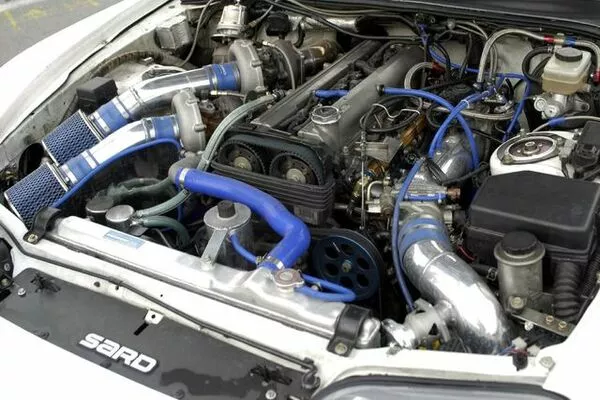
Car engines are complicated contraptions
It doesn’t matter if you drive a hatchback or a sports utility vehicle (SUV) or maybe even a hypercar, it is important to take into consideration any essences that you would be giving your car for a good run.
Car engines are complicated contraptions. But, it is general knowledge that oil is needed for a car to function smoothly. Your car’s engine is the heart of your vehicle. If it doesn’t function properly, then expect to have multiple problems along the way.
That is why engine oil is of importance. Not only does it serves as a lubricant for the engine components, but it also keeps your car engine clean (more on oil filters later on), and it helps in keeping the temperature inside the hood at bay.
1. What to consider when buying good car oil
Now, selecting the right engine oil is serious business. There are different types and brands of car oil to choose from. Granted, it can get a little overwhelming. But before jumping the gun and buying all types of car oil to test on your car, you need to consider some external factors.
>>> Related: What is an oil catch can: Purposes, Benefits, Pros & Cons
Location & habit
Remember that the frequency and manner in which you drive your car will have a parallel effect on your car’s engine. That is why, when you drive your car constantly, whether it be a family outing or a quick stop at the grocery, the engine will put under a lot of tension, thus will need to use its lubricant more often.

The first thing you need to consider is your locality
>>> Read more: 4 factors to consider to choose the right engine oil.
Different types of vehicle
Ever read your car’s baby book? It’s the manual you get when you purchase your vehicle. The manual is going to be your best friend. Everything you need to know about the maintenance of your car is on there. So, that will already give you a pretty good start on what is the perfect engine oil for your car.

The car's manual will already give you a pretty good start on what is the perfect engine oil for your car
But for some who are fans of restoring vintage cars or building one from scratch, sometimes, the manual is lost in time. That is why it is recommended you consult a mechanic or do some research.
>>> Related: How do oil filters work and how do I keep them in tip-top shape?
2. Types of Car Oil
Generally, there are four types of engine oil:
Conventional Oil
It is also known as refined crude oil. This is the commonly used engine oil.

Conventional oil is the commonly used engine oil
Full Synthetic Oil
This is the much more refined crude oil. It has higher viscosity levels, resistance to corrosion, thermal breakdown and avoid oil clumping. It can provide higher performance, reduce engine drag and gives more protection than conventional oil.
Full synthetic oil comes in different subtypes as well. There are ones that are specifically formulated to keep your engine cleaner, protect your engine in any weather conditions or a combination of both.
But with pros comes with cons, full synthetic oil can cost four times than regular oil. That is why a mechanic’s consultation and recommendation is still needed.
>>> Also check: 5 signs to check if your car needs an oil change.
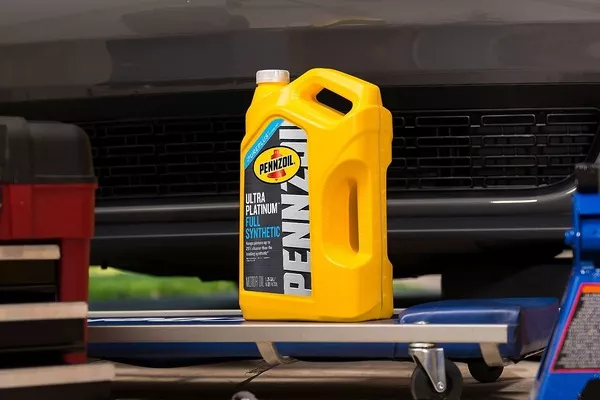
Full synthetic oil is the much more refined crude oil
Synthetic Blend Oil
This is a combination of both conventional and full synthetic oil. It is composed of some additives that full synthetic oil has but at a lower price. This is also a driver – friendly for those who switch between fully synthetic and conventional oil.
High Mileage Oil
This type of plate is specifically designed for cars with a mileage of more than 75,000. It can moderate oil consumption, minimize leaks and help lessen carbon emissions in older models.
3. Types of Oil Filters
You now have found the perfect car lubricant for your vehicle and can’t wait to give your engine a whirl. But before you do that, we should be acquainted with oil filters too.
Always have clean motor oil. That is why oil changes are a big part of car maintenance. Before, you need your car’s oil changed after every three months. But because of technological advancement, newer car models are designed to have a longer interval for oil change mileage.
Experts still recommend having oil changes between 5,000-10,000 miles.
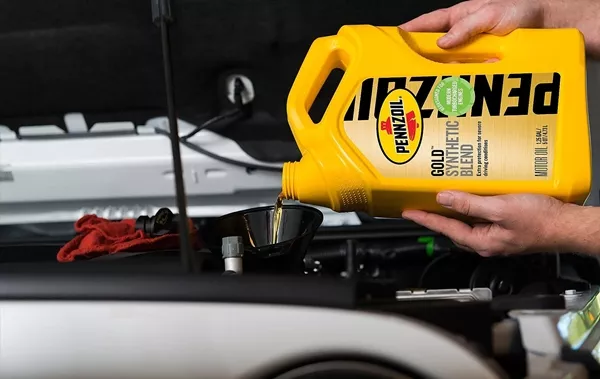
Besides knowing your car oil, you also need to understand different types of oil filters
If an oil change is not done as scheduled, this can affect your car in the long run. Unfiltered oil can be your car’s worst nightmare. If your oil has not been changed for a long time, foreign solid particles can be mixed with your lubricant and can damage engine parts.
Continued exposure to dirty oil can take a toll on your car’s performance and can lead to more repair expenses. And that is why oil filters were invented: to sieve those abrasive elements and help in maintaining clean oil in circulating throughout the entire engine.
Primary Oil Filters
They are also known as “Full Flow Filters.” These are the pre-installed filters on your car. Primary Oil Filters have lower flow restrictions so it is a possibility that smaller particles can still get through.
>>> Relevant article: Car Engine Oil Analysis: What’s your Engine Oil Telling You?
Secondary Oil Filters
If there are Primary Oil Filters, there are also Secondary Oil Filters or “Bypass Filters” (not to be confused with the bypass valve). They too are pre-installed and serve as the second stage in the filtering process. Frequent filter cleaning is necessary.
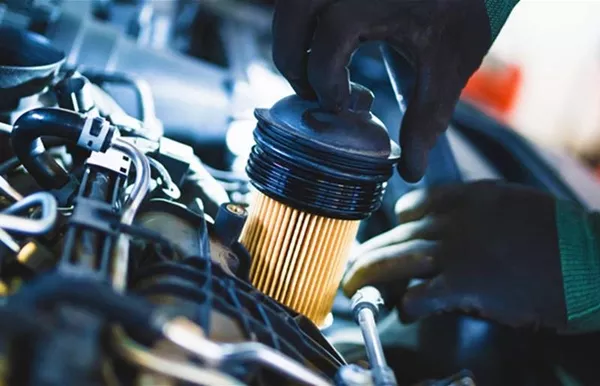
If an oil change is not done as scheduled, this can affect your car in the long run
Thermal Chamber Oil Filters
This filter hits two bird with one stone: they filter the oil and melt off combustible contaminants, effectively refining the lubricant. The catch, however, is that it uses your car’s battery’s electricity and can reduce fuel efficiency.
Spinner Oil Filters
They are also known as “Centrifugal Oil Filters.” This filter got its name from the rotating motion it does to filter out and hold unwanted particles. It is composed of two sections: the housing chamber and the membrane.
The membrane is prone to get congested more often thus results in a problem with its spinning method, so replacing it would be required.
>>> You might concern: 7 effective ways to reuse your used motor oil.
Magnetic Oil Filters
This filter uses an electromagnet to capture metallic particles from the oil, hence will render your engine defenseless from plastic components. They need not be replaced immediately once clogged because regular cleaning would be sufficient.
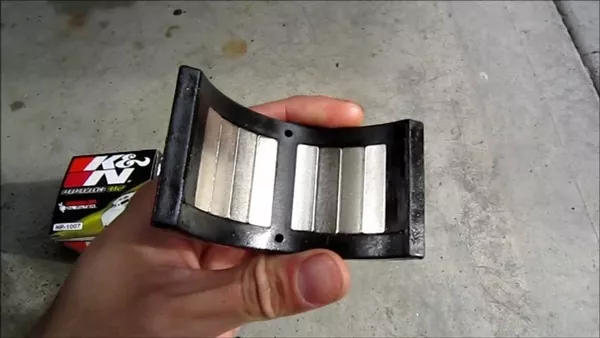
Magnetic oil filters will render your engine defenseless from plastic components
Recent posts
- Understanding the oil life monitor system Aug 16, 2022
- Steps to remove grease and oil from car interior Aug 16, 2022
- 9 steps to replace fuel filter on car Mar 16, 2021
- Used Motor Oil Recycling Finally Debunked! Aug 09, 2018
- 3 things to keep in mind when changing oil for automatic transmission cars Feb 19, 2021












